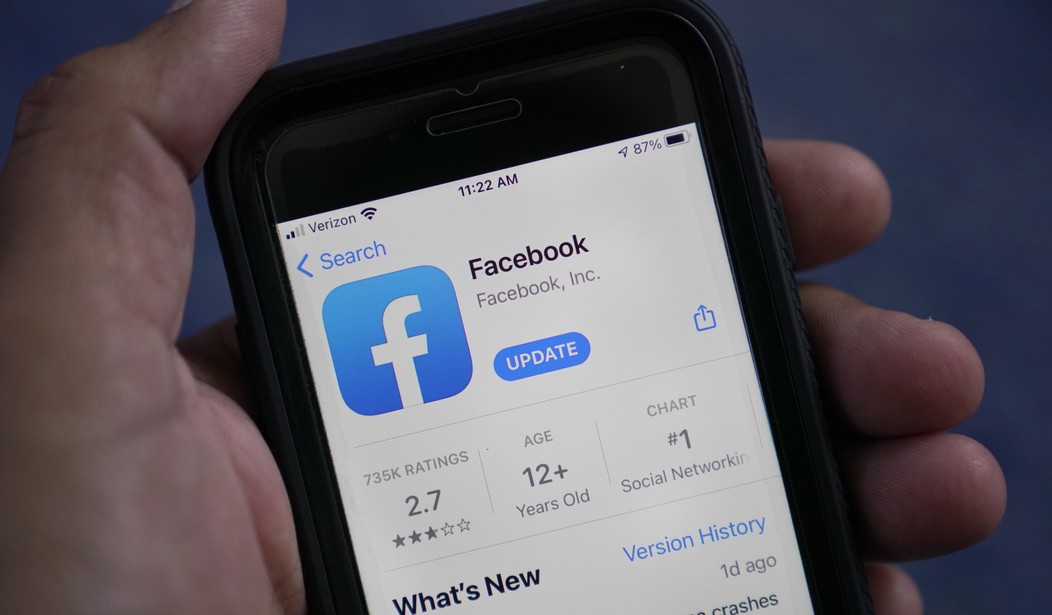A recent ruling by the Texas Supreme Court is an opportunity for all of the Big Tech companies to take a pause and reevaluate their priorities. Big Tech tends to spend a lot of energy ensuring that outlets like PJ Media don’t get too many clicks and policing the opinions of researchers like Bret Weinstein and the Senate testimony of eminent physicians like Dr. Pierre Kory. However, the Big Tech platforms may want to turn their attention to an entirely different subset of users.
According to the Houston Chronicle:
The Texas Supreme Court ruled Friday in a Houston case that Facebook is not a “lawless no-man’s-land” and can be held liable for the conduct of pimps who use its technology to recruit and prey on children.
The ruling came in a trio of Houston civil actions involving teenage trafficking victims who met their abusive pimps through Facebook’s messaging functions. They sued the California-based social media juggernaut for negligence and product liability, saying that Facebook failed to warn about or attempt to prevent sex trafficking from taking place on its internet platforms. The suits also alleged that Facebook benefited from the sexual exploitation of trafficking victims.
The justices said the case could proceed under a provision of the Texas Civil Practice and Remedies Code passed in 2009. They also noted that Congress had amended Section 230 to allow civil liability for websites that violate state or federal human trafficking laws. Liability can attach if the company knows human trafficking occurs on its site and takes no action.
The grooming and recruiting of victims on social media is not just a problem in Texas. The Human Trafficking Institute monitors cases nationwide and found 41% of cases originate on social media. Additionally, while Facebook accounted for 59% of online recruitment of victims in 2020, the institute found that predators used other platforms to recruit victims as well:
After Facebook, Instagram and Snapchat were the most frequently cited social media platforms for recruiting child victims, accounting for 14% (15) and 8% (8) of child recruitment, respectively.117 Among adults, other top platforms were WeChat (43%, 12) and Instagram (7%, 2).118 Overall, when examining websites and apps used to recruit victims irrespective of age, the most common sites in active sex trafficking cases—after Facebook—were Instagram (13%, 17), WeChat (9%, 12), and SnapChat (7%, 9)
The public has become increasingly aware of the tools these platforms use to remove content they do not like. Most of this information relates to political content, and whistleblowers have provided detailed programming schemes to outlets like Project Veritas that show the lengths these companies go to censor users. The companies use Section 230 as a shield to accomplish this level of censorship.
Facebook also used it to argue that it was not responsible for the trafficking of several young women in Texas. The judges were having none of it:
“Holding internet platforms accountable for the words or actions of their users is one thing, and the federal precedent uniformly dictates that Section 230 does not allow it,” the opinion said. “Holding internet platforms accountable for their own misdeeds is quite another thing. This is particularly the case for human trafficking.”
When CBS News asked Facebook about the report from the Human Trafficking Institute, the company responded in a statement:
“Sex trafficking and child exploitation are abhorrent and we don’t allow them on Facebook. We have policies and technology to prevent these types of abuses and take down any content that violates our rules.”
“We also work with safety groups, anti-trafficking organizations and other technology companies to address this and we report all apparent instances of child sexual exploitation to the National Center for Missing and Exploited Children,” the statement said.
Human trafficking is a horrific crime, but it is not the only one that occurs online. Twitter and Facebook have issues with ISIS and other groups organizing and advocating other forms of political violence. Several platforms have had problems with pornography, including child pornography. There is also content related to different types of fraud and drug trafficking.
Related: How Many People Did Big Tech’s Pandemic Censorship Kill?
Perhaps these Big Tech companies should spend more time creating solutions to deal with illegal behavior before they worry about doctors advocating safe and effective medications that may help patients with COVID-19 or experts giving alternative viewpoints on solutions for climate change. If they spent more time eradicating actual criminals from their platforms rather than thought criminals, they could positively impact the world. Where they spend their energy now only serves to divide it.










Join the conversation as a VIP Member